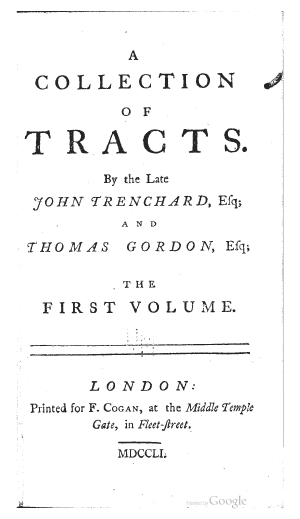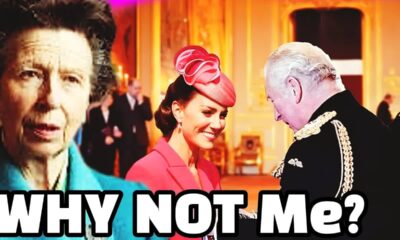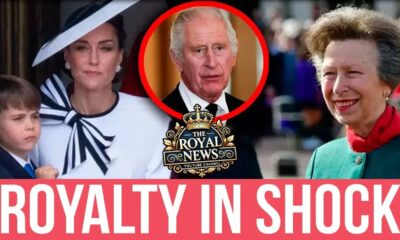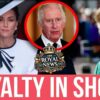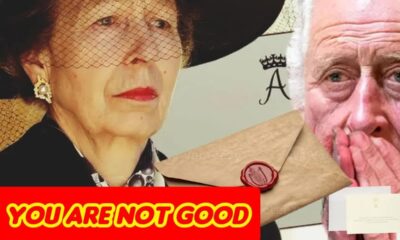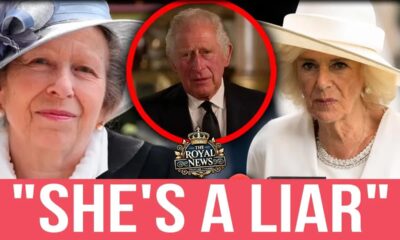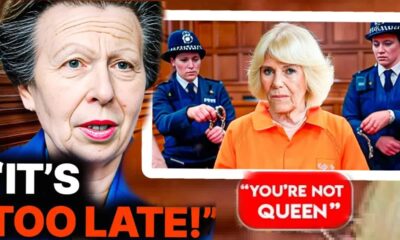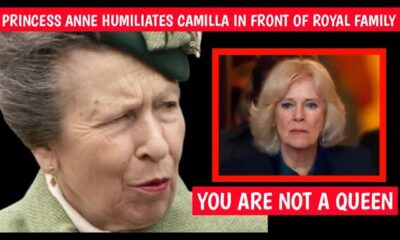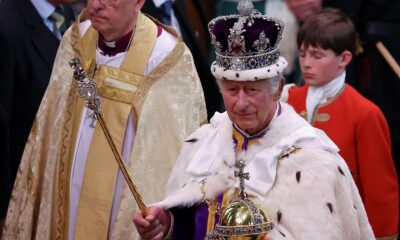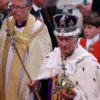Must Read
A Royal Shift: Princess Anne Takes the Helm as Counsellor of State
In a significant move that reflects both tradition and the changing dynamics of the British monarchy, Princess Anne has officially replaced Prince Andrew as Counsellor of State.
This transition is not merely a reshuffling of titles; it symbolizes a broader narrative involving the monarchy's future, public perception, and the need for accountability in royal duties.
The role of Counsellor of State is pivotal, stepping in when the monarch is unable to carry out their responsibilities due to illness, travel, or other circumstances.
Historically, this position has been held by close family members, such as spouses or senior royals.
However, recent controversies surrounding Prince Andrew, particularly his connections to convicted s offender Geoffrey Epstein, have necessitated a reevaluation of who holds such a crucial title.
Can someone who has lost public trust truly fulfill high responsibilities within the monarchy?
The answer, it seems, is a resounding no.
Princess Anne, known for her steadfast commitment to public service, has emerged as a fitting successor during these turbulent times.
Her reputation for hard work and dedication sets her apart from others in the royal family.
Unlike some of her relatives who may seek the limelight, Anne has consistently focused on her royal engagements, often taking on more duties than anyone else.
She embodies the kind of reliability we might associate with a dependable colleague who keeps everything running smoothly while others falter.
This shift from Prince Andrew to Princess Anne illustrates the monarchy's recognition of the need for stability and an acute awareness of public sentiment.
The royal family is in a delicate dance between upholding tradition and embracing modernization.
By appointing Anne, they are prioritizing duty and competence over scandal and controversy.
Prince Andrew's dramatic fall from grace serves as a backdrop to Princess Anne's ascension.
His association with Epstein and a disastrous BBC interview led to his withdrawal from public life and diminishing involvement in royal affairs.
Once hailed as the Queen's favorite child, Andrew's decline has been nothing short of shocking.
The significance of the Counsellor of State role cannot be overstated, and keeping Andrew in that position was simply untenable.
As the monarchy adapts to modern expectations, questions arise about how they will navigate future sensitive transitions.
The British monarchy has thrived for over a millennium by evolving and remaining relevant.
How can a centuries-old institution resonate with today's audience?
With her practical approach, Princess Anne is a key player in this endeavor, balancing traditional values with a relatable persona.
Gone are the days when the monarchy operated in secrecy.
In our age of social media and constant news coverage, transparency is essential.
The royal family finds itself under more scrutiny than ever, and being open about their decisions is crucial.
Embracing honesty, though challenging, is necessary for maintaining trust, both personally and publicly.
As the royal family becomes more transparent, the public grows increasingly invested in its actions, fostering a sense of accountability that is vital for survival in the 21st century.
This change signals more than just a new title; it represents a broader transformation within the royal family.
King Charles III appears intent on creating a leaner, more focused monarchy, where only dedicated and scandal-free royals occupy key roles.
This shift is not solely about Andrew or Anne; it's about the monarchy's evolution as a whole.
What other changes might we anticipate as Charles continues to reshape the royal family to meet contemporary expectations?
The lessons gleaned from this royal transition extend beyond the palace walls.
Just as the monarchy must manage its public image, individuals and organizations can learn valuable lessons from their experience.
Embracing transparency builds trust and credibility, while knowing when to step aside can be a sign of strength, as demonstrated by Andrew.
Consistent dedication, as exemplified by Princess Anne, outshines any drama or controversy.
Princess Anne's rise to prominence and Prince Andrew's retreat serve as reminders that reputation is paramount.
The royal family's image has suffered recently, and their decision to appoint Anne reflects a serious commitment to restoring public trust.
They are eager to promote those who embody hard work and integrity, recognizing that maintaining a positive image is essential for their survival in a world that demands accountability.
As we reflect on the implications of this royal shift, one thing is clear: the British monarchy is undergoing a transformation.
The appointment of Princess Anne as Councillor of State marks a new chapter, one that emphasizes stability, transparency, and a renewed focus on duty.
The road ahead may be filled with challenges, but with figures like Anne leading the way, the monarchy appears poised to navigate the complexities of modernity while honoring its storied past.
